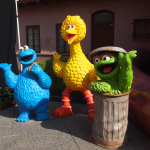Branding normal phases of development and transitions have become a thing, mainly to sell books more than identify any new discovery. That said, the first three months of a baby’s life after birth and mom’s postpartum period is a rather unique time for many reasons.
Parents & Kids
Ideology, not medical reality, has infected much of modern parenting. The most compelling pediatric articles -- centered around misguided activism that still persists -- focused on infant feeding, vaccines and mom-shaming.
By encouraging the avoidance of unpleasant things and equalizing all degrees of suffering, our culture has overcorrected to the point of hampering child development.
Marketing normal development manufactures a problem in need of a solution, which typically appears in the form of an expensive product. As a result, the vulnerability and fears of new parents get most exploited.
Kids are more resilient than you think, but are also magical thinkers. In the absence of direct communication from a parent, they will create their own narrative which can foster greater worry.
It is time to push back over society's chaos-aversion. The price the next generation is paying is too great.
Substitute the word "Halloween" for any celebratory event and pervasive worry-lists abound. Fun also matters.
Now, Disney Princesses and films are under attack. We are straying further and further from what most impacts child development, as a source of adult challenges.
With continued refrains of "too many" or "too few" being applied to manners of birth, which often serve to shame or assign blame, the focus is on the wrong issue. A new study on delivery mode helps inform us on this topic.
Rushing through the seemingly mundane aspects of childhood might not be playing the long game.
Many well-intended efforts that fixate on bias can achieve the unintended consequence of imposing it instead.
A new paper throws every journalism clickbait notion into one epidemiological claim. Take a look.











